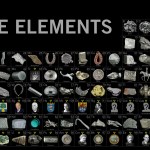Uncategorized
Today was the first day of classes for the spring semester. I have a light teaching load this term, which is my reward for having an especially heavy teaching load last term. Just two classes, and they both meet in the afternoon, no less. For a night-owl like me that's a good deal.
One of my courses is second-semester calculus. Since this is the continuation of a course I taught last term, I get to see a lot of familiar faces. That's always nice, since it usually takes me a while to learn everyone's name. On tap are lots of exponential functions, logarithms, and trigonometry. Also, I…
The last two installments of this series have seen some pretty heavy problems. So, this week I'd like to lighten the mood. The problem below calls for selfmate in two, and it was composed by me! It was published in the May 2014 issue of The Problemist.
Recall that white is always moving up the board and black is always moving down. So, black's pawns on the second rank are poised to promote (though that fact is not relevant to the problem). Also recall that in a selfmate, white plays first and forces black to give checkmate in no more than the stipulated number of moves. Black, for…
The Pythagorean theorem made a big impression on me when I first saw it in middle school. It was probably the first genuinely non-trivial theorem that I learned. The theorem is simple to state and to understand, but it is not at all obvious. I have a clear memory of my sixth grade math teacher, Ms. Oswald, showing it to me, and having my reaction be, “No way!”
The theorem, of course, states that if a right triangle has sides a,b,c, with c representing the hypotenuse, then we have the equation
$latex a^2+b^2=c^2$
More geometrically, we can say that the square on the hypotenuse is equal to…
I'm sure we all remember Pascal's Wager. Though it is often wrongly presented as an argument for God's existence, it was really intended as an argument for why we should act as though we believe in God. Roughly, the idea was that if you believe in God and you're wrong then, well, no big deal. But if you do not believe in God and are wrong, you lose eternal bliss.
The more interesting part was his reply to those who argued that you will not fool God by merely pretending to believe in Him. Pascal suggested that consistently going through the motions of religious practice, and immersing…
Lots of responses to the terrorist attack against the French satirical magazine Charlie Hebdo. Some of it reasonable, some of it not.
Matthew Yglesias said almost the same thing I did:
Viewed in a vacuum, the Charlie Hebdo cartoons (or the Danish ones that preceded it) are hardly worthy of a stirring defense. They offer few ideas of value, contribute little to any important debates, and the world would likely have been a better place had everyone just been more polite in the first place.
But in the context of a world where publishers of cartoons mocking Mohammed have been threatened,…
You've probably already heard about what happened in France today:
Masked gunmen attacked the Paris offices of satirical weekly newspaper Charlie Hebdo on Wednesday, killing 12 people before fleeing.
French security forces launched a major manhunt in the capital after the gunmen fled the scene of the attack, The Guardian reported. Police are searching for two brothers from the Paris region and another man from the northern French city of Reims in connection with the attack, a police source told Reuters.
The attackers stormed Charlie Hebdo's Paris newsroom during an editorial meeting and…
“The whole difference between construction and creation is exactly this: that a thing constructed can only be loved after it is constructed; but a thing created is loved before it exists.” -Charles Dickens
Just... go. I can't even do it justice in a synopsis, or with 600 pixel image widths.
This was the original.
Image credit: NASA, Jeff Hester, and Paul Scowen (Arizona State University).
Go see the new, full-resolution story of wonderment. GO!
“A physicist is just an atom’s way of looking at itself.” -Niels Bohr
There's a wonderful story that the Universe tells us about itself: the story of where everything in it came from, and how it came to be this way. From the perspective of a human being, there's possibly no component of that as important to our existence as the humblest of all building blocks: the atoms.
Image credit: (c) Theodore W. Gray, from http://periodictable.com/.
Yet when the Universe first cooled from the Big Bang, over 99.999999% of what existed was nothing more than hydrogen and helium. So where did the atoms…
When I started this series, one of the first topics I highlighted was the idea of a logical problem. The idea is this: White has a main plan for achieving his objective. However, if he tries to play it immediately black has a defense that will defeat him. So white must first play a foreplan, whose sole purpose is to neutralize that defense. Once the foreplan has worked itself out, he can go back to executing his main plan.
I love logical problems. When I think of the problems that really get me emotional, at the top of the list are the great logical problems. So, how about we start off…
Mario Cuomo, governor of New York from 1983-1994, died on New Year's day. He is a throwback to a time when Democrats weren't cowards, and were actually capable of articulating a compelling and humane vision of how society should be. Consider this speech, delivered at the University of Notre Dame in 1984. Cuomo was a devout Catholic, and was discussing how he reconciles his religious faith with his politics.
We know that the price of seeking to force our beliefs on others is that they might some day force theirs on us.
This freedom is the fundamental strength of our unique experiment in…
Well, it's taken me longer to get back to this than I originally planned, but how about a second look at the Babson Task? The problem below was composed by Leonid Yarosh, in 1983. It's white to move and mate in four:
Remember that white is always moving up the board and black is always moving down. So, black's pawn on a2 is poised to promote.
Folks, this is one of the most famous diagrams in the history of chess composition. Why? It's one of the first direct mates to show the Babson Task, and the first to show the task with an acceptable key. (The absolute first had a key that…
I was all set to do a big post about the police, but then Kevin Drum went and said exactly what I was thinking:
It shouldn't be too hard to hold two thoughts in our minds at once. Thought #1: Police officers have an intrinsically tough and violent job. Split-second decisions about the use of force come with the territory. Ditto for decisions about who to stop and who to keep an eye on. This makes individual mistakes inevitable, but as a group, police officers deserve our support and respect regardless.
Thought #2: That support shouldn't be blind. Conlin reports that in her group of 25 black…
Joe Cocker is (was?) one of my favorite musical artists. Having said that I quickly add that while his work is well represented on my list of favorites, I also really don't like a bunch of his other work. But the stuff that's good is great.
He died today at the age of 70.
One of the best "albums" you can get if you like rock and roll is Mad Dogs and Englishmen. It's Joe Cocker and a bunch of other great musicians of the day, live, double album. On that album you will find Feeling Alright. Great song. I remember Amanda being very disappointed when she learned that the relevant statement…
As you all have no doubt noticed over the years, I love highlighting the best science books every year via the various end of year lists that newspapers, web sites, etc. publish. I've done it so far in 2008, 2009, 2010, 2011, 2012 and 2013.
And here we are in 2014!
As in previous years, my definition of "science books" is pretty inclusive, including books on technology, engineering, nature, the environment, science policy, history & philosophy of science, geek culture and whatever else seems to be relevant in my opinion.
Today's list is Scifri – The Best Science Books of 2014.
The…
Let's continue with the discussion I started in yesterday's post.
We are considering whether it is reasonable to persist in believing in the reality of Adam and Eve given the findings of modern science. The problem is that the Bible seems clear that at the time of their creation, Adam and Eve were the only human beings on the planet. But genetic analyses contradict this, pointing instead to the conclusion that the human population has never dipped below two thousand, at an absolute minimum.
There are two broad strategies for avoiding this conflict: Deny the genetic evidence or deny that…
A common theme at this blog is that I don't like blanket statements to the effect that science and religion are incompatible. The main problem I have is that “religion” means so many different things to different people that it is pointless to paint with such a broad brush. A secondary point is that science is vast, and most of it does not address anything of interest to the world's major religions.
However, we can certainly make the more modest claim that specific findings of science are at odds with some commonly held religious views. In particular, evolution at least appears to conflict…
Actually, I wrote that last post partly because I wanted to comment on this one, from David Klinghoffer. He likens the plight of TNRs former staff to the situation of ID proponents:
I identify with TNR's ex-staff, too, in a more fundamental way. In the evolution controversy, it's supporters of intelligent design who stand for ideas (disagree with us or not) and idealism. We've paid a heavy price for that. No one has ever gone into the field of ID in search of career security. By contrast, whatever the merits of Darwinian theory as science, its advocates often seem to be a cynical lot, too…
While it's hardly the most important thing going on in the world right now, we should take a moment to note the effective demise of The New Republic. There was a time when TNR was one of the best liberal journals of opinion to be found. In the late seventies and eighties, when the magazine was edited by people like Rick Hertzberg and Michael Kinsley, it was the place to go for consistently intelligent commentary from a center-left perspective. More than that, they also had impressive coverage of culture and the arts. My parents were subscribers for a while, and I can recall reading in…




